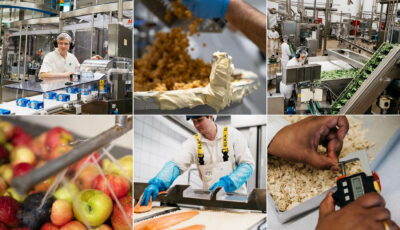Sweden Food Arena’s innovation and research agenda in English
In June 2020, Sweden Food Arena launched an innovation and research agenda for the food sector. The agenda is now available in english.

The food strategy adopted by the Swedish parliament in 2017 states that the Swedish food supply chain will become globally competitive, innovative, sustainable, and attractive to operate within. Total food production must increase in order to create growth and jobs and to contribute to sustainable development throughout the country. One of the three strategic areas for achieving this goal comprises knowledge and innovation. The innovation and research agenda is the food sector’s response to how we can take on the challenges that exist in said area.
The agenda is based on the food sector’s need for increased competitiveness, growth, and environment-ally, economically, and socially sustainable development. Achieving sustainable and competitive food prod-uction requires new knowledge and innovation. In a ranking of 20 comparable countries, Swedish inno-vation capacity ranks in the top in industries like steel, forestry, and automotive, while the food sector ranks 14th. Therefore, in order to meet the challenges facing the food sector, we need a collective commitment to research and innovation – which also includes a strengthened innovation system.
Food production in Sweden will increase by gaining market shares, both domestically and through increased exports. This allows the sector to build food security and gain increased confidence among Swedish consumers.
Five missions
The Agenda has been developed by Sweden Food Arena through an established process, where stake-holders from across the chain have identified vision, goals, and commitments – missions – as well as areas of focus and proposals for measures.
The five missions are:
Mission 1: The world’s most attractive food and drink. In 2030, conscious consumers worldwide are choosing Swedish food and drink thanks to our unique added values.
Mission 2: Competitive food innovation. In 2030, there are 50 new Swedish food innovations generating a total turnover of 1 billion euros.
Mission 3: Food and drink for a healthy life. In 2030, thanks to an attractive offering of healthy and flavourful products, Swedish consumers have better eating habits.
Mission 4: A resource-efficient food sector. In 2030, the profitability and resilience of the Swedish food sector have strengthened thanks to increased resource efficiency and sustainable production methods.
Mission 5: Climate-neutral food production. In 2045, Swedish food production has a net zero carbon footprint.



